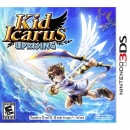SvennoJ said:
echoesfromthepast said:
SvennoJ said:
I don't refute games as art but:
Once again, in this medium we cannot be spectators. We are forced to confront our own actions and that forces introspection upon us. This is the unique power of video games as a medium. unlike a film or a book where I just observe what the characters choose to do.
Not unique to me. Books and movies have given me far more food for thought and introspection then video games ever have. Video games sometimes have a few more options in them how the writers think things can play out, however seldom do I get to make my own solution. I'm merely offered a choice between 2 preset options. I find that a weak argument for games as art.
The good thing about books and movies is that you get to see the other side of the argument. You can't influence the outcome but you can learn what drove the characters to do such things, and maybe change your mind about how you see things. That doesn't work in a game that offers you A/B/C choices since the choices never really play out further. The game has to get the story back on track before the next choice point. In that regards it's not much more then a poll question.
|
Think less about choosing between a few pre-set options (Mass Effect was just a simple example) and more about gameplay as a whole. In other words, the way that you play any game forces some level of introspection. That is the intrinsic element of video games. Here is a simpler example: In Super Mario Bros. you hit a ? block and a mushroom comes out. The mushroom is always moving to the left where unknown enemies could come out at any moment. Do you as a player go for the benefits of the mushroom knowing the potential risks? Or do you leave it because you can't afford to lose another life trying to get it? How do you handle choice and conflict? How do you weigh the benefits and risks of any given situation in a split-second without even thinking about it?
What I'm trying to emphasise is this: the way you play teaches you things about yourself that you would never have thought of otherwise. And that is unique. That is art.
|
That's more about pattern recognition, muscle memory and reflexes.
I can agree with you with a game with Journey. Do you rather go off alone, try to communicate, follow the other person, help out, wait, reveal secrets or not spoil it and simply observe.
While a game like Guacamelee (or mario to a lesser extent) can teach you the limits of frustration, when to put the game away before having to buy a new controller. There is no real choice involved, you either press on or quit. Same choice you have with watching or reading something.
That is not how I would define art. That would be experiencing the creative expression of someone else, perfectly fitting games but not because of choice or how I play it. For example I consider Ico a great piece or art, but the gameplay still is simple problem solving. Sure I feel uncomfortable leaving Yorda alone while trying to figure out the next puzzle or explore a bit. I want to keep her safe not to have to start over. Those protective feelings heighten the emotion of the game world and story, but I don't feel it's because of my choices.
The feelings are heightened because of my participation ofcourse, maybe we're talking about the same thing in the end after all. I just don't feel it's because of choice. A games' biggest advantage over movies is pacing. You determine how fast you experience the story. As you said you can step out and debate a choice before continuing, or slow down and reflect on what's happening. That's why something like Dear Esther works.
|
Either we're talking about the same thing and have a communication problem or . I would define art as any aesthetic that is life-changing or enriching. Every single video game that I keep in my collection has either changed my life (Kid Icarus Uprising, Passage, Braid) or has enriched it (Zelda, Metroid Prime, Mario Bros.) through gameplay alone. I have one final example if you're willing to watch it (it's only like 7 min long).
http://www.penny-arcade.com/patv/episode/narrative-mechanics
(sorry I don't know how to imbed a video but I put the link there)
I would also like to add that just because a game has rules and boundaries does not mean you have no choice in how to play. Let's say someone created a universe with rules and put you in it with the intention of having you live a particular experience. Does that necessarily remove your free-will to live the experience the way you want? As long as it's within the boundaries of the rules, no. The same thing holds true for video games.

![]()
![]() Aurum Ring
Aurum Ring ![]() Delano7
Delano7 ![]() Ocarinahero032
Ocarinahero032



















